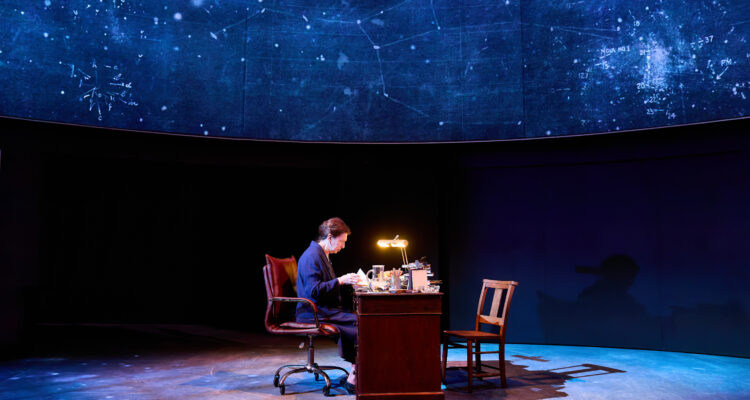An often overlooked story, The Lightest Element brings to life Cecilia Payne-Gaposchkin, the woman who discovered that stars are primarily composed of hydrogen. Hers is a tale that deserves to be widely known.
The play intertwines the personal, political, and scientific, drawing comparisons to works like Oppenheimer and The Theory of Everything. It shines a spotlight on Payne-Gaposchkin, a woman, like many of her time, disregarded and overshadowed. Although grounded in historical truth with three real figures, the play introduces fictional characters that emphasize the generational struggle for women to be taken seriously in the workplace, while also celebrating the power of sisterhood.
Cecilia Payne-Gaposchkin, moved to the US to pursue an academic career after studying at Cambridge – since they did not award degrees to women till 1948. There she was granted a fellowship to study astronomy at Harvard, but only received a PhD from Radcliffe College as Harvard didn’t grant doctoral degrees to women. Thus, in 1925, at 25 years old, Cecilia had concluded in her thesis that stars were made up of mostly hydrogen and helium. However, astronomer Henry Norris Russell dissuaded her from using it and unfortunately later took credit for.
The Lightest Element looks at this story 30 years on, when Cecilia (Maureen Beattie) is being considered for chairmanship of the astronomy department – a position she is very qualified for. Her paths cross with Sally Kane (Annie Kingsnorth), a keen student who has been given the opportunity to interview Payne-Gaposchkin for the Harvard Crimson. However, through manipulation of her boyfriend Norman (Stefan Cennydd), her questions are pointed, alluding to ties with the communist regime. Cecelia is married to Sergei Gaposchkin, a Russian astronomer.
Thus, the play explores the complexities of the two women’s journeys of discovering their own strength to stand strong in a man’s world. Maureen Beattie plays Cecilia with a candid strength that I am sure she would have had, as well as a wit, making the character very likeable.
The rotating stage facilitated for sleek transitions between scenes, and the overall set resembled that of a planetarium. Cast members continuously smoked cigarettes on stage, a token of the time. Although this made for a few coughing audience members, it did provide an atmospheric experience that would’ve been indicative of that period.
The calibre of talent was on par with other productions of Hampstead Theatre, all solid performances. In this case, none particularly stood out. The script was well-crafted, striking a perfect balance between accessible science and believably timed humour, making the complex content engaging without overwhelming the audience.
Overall, this is an incredibly important story, especially considering the significant gender disparity in STEM today. One of my favourite lines captures the essence perfectly: “It’s time to stop listening to dead men.”
Written by: Stella Feehily
Directed by: Alice Hamilton
Cast includes: Maureen Beattie, Steffan Cennydd, Simon Chandler, Hari Kang, Annie Kingsnorth, Rina Mahoney, Simon Markey, Julian Wadham
Running time: Approximately 1 hour and 35 minutes (no interval)

